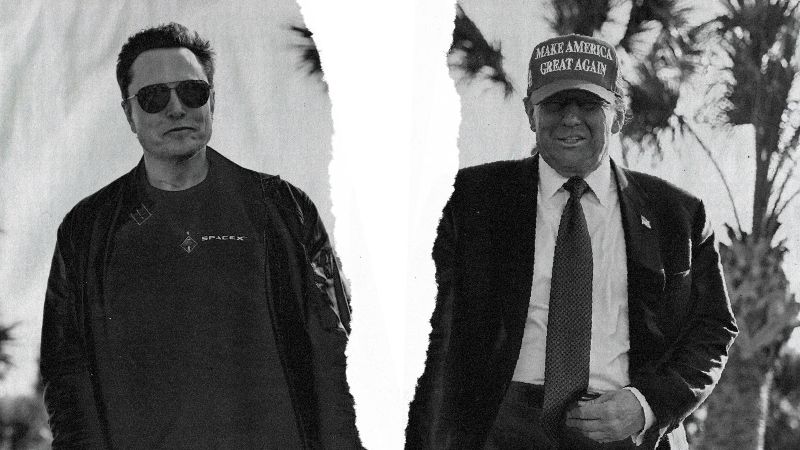On an otherwise ordinary Thursday, a significant public spat erupted between President Donald Trump and billionaire entrepreneur Elon Musk, which quickly escalated across social media platforms and even resonated within the confines of the Oval Office. The controversy ignited over Trump’s massive tax and domestic policy bill, which Musk vehemently criticized, marking a stark departure from their previously amicable relationship.
The seeds of discord were sown earlier in the week on Tuesday when Musk characterized Trump’s cherished legislation—often referred to by the president as his “big, beautiful bill”—as a “disgusting abomination.” This denunciation took many, especially Republican leaders, by surprise, given Musk’s history as an influential figure within conservative circles and as a supporter of Trump’s earlier policies.
By Thursday, Musk escalated the contention further when he began disseminating past comments made by Trump and several Republican lawmakers. These remarks highlighted concerns regarding government spending and the federal deficit, emphasizing the inconsistencies some might perceive in Trump’s advocacy for the bill. The billionaire’s strategy seemed calculated, aimed at not just critiquing the current policy but spotlighting the contradictions in its projected effectiveness vis-a-vis fiscal responsibility.
As this public feud unfolded, it drew in a host of prominent figures from both Trump’s and Musk’s respective teams. The discourse grew heated, with Trump even threatening to cancel government contracts awarded to Musk’s various enterprises. This display of animosity marks a striking turnaround in relations, considering Musk had previously been an outspoken supporter of the president and an active player in White House discussions.
To understand the magnitude of this rift, it is crucial to reflect on the dynamics of the Trump-Musk relationship leading up to this incident. Musk had, until recently, been seen as a reliable ally, often championing Trump’s business-friendly policies and initiatives. In fact, just last week, during an event commemorating his formal departure from government duties, Musk had publicly avowed his intention to remain “a friend and an advisor” to the Trump administration. These statements underscored a robust alliance that now appears irreparably fractured.
The implications of their disagreement extend beyond personal animosities; they underscore the tensions within the Republican Party itself. With Trump’s direct financial policies being scrutinized by someone as influential as Musk—a quintessence of the American entrepreneurial spirit—this could signal broader fractures not only in Trump’s base but also in how fiscal strategies are accepted or rejected by major business leaders.
As this high-profile feud develops, observers and political analysts are keenly watching for further revelations and escalations. Trump and Musk, both formidable figures in their own right—one a former president with vast political influence, the other an innovator leading some of the most prominent tech and space endeavors—find themselves in an unprecedented public confrontation. Both leaders wield substantial power in their respective domains, making the outcome of this dispute particularly consequential.
In conclusion, the emerging saga illustrates not merely a clash of personalities but a deeper ideological battle around fiscal responsibility and government policy. With Musk’s criticisms resonating among some Republicans and Trump’s steadfast defensive strategies, both men are at a crucial juncture. As developments continue to unfurl, particularly regarding the fate of Trump’s tax and domestic policy bill, the ramifications of this feud could have lasting implications for the integrity of their previously strong partnership. As such, the timeline of events will undoubtedly continue to evolve, with both political and social media arenas buzzing with fresh updates.



